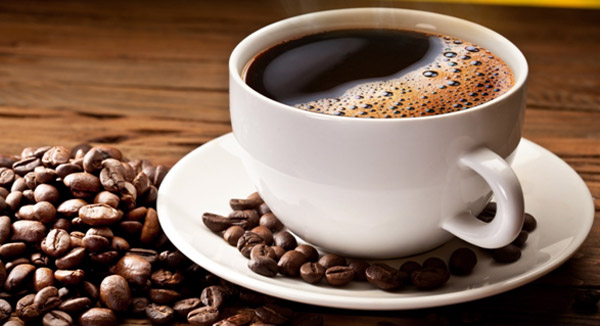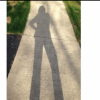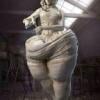Caffeine and Weight Loss Surgery: Not a Good Partnership

For most people, this drug is about as harmless as a drug can be. It wakes you up, keeps you mentally sharp, and even helps you burn a little extra fat. There aren’t many serious health risks, as long as you don’t have too much.
For weight loss surgery patients, though, caffeine is a bit of a bigger deal. Find out what it can do to your body, how much is safe to have after surgery, and where to find it.
Caffeine and Your Digestive Tract
Caffeine is an acid, and it can irritate the lining of your stomach pouch or sleeve. This is true whether you have the lap-band, vertical sleeve gastrectomy, or gastric bypass. One way to prevent symptoms is to make sure you don’t have your caffeine on an empty stomach. However, that’s not really possible when your weight loss surgery diet doesn’t allow you to have beverages at the same time as solid food! Limiting your consumption is the best way to avoid trouble.
Caffeine and Acid Reflux
Acid reflux occurs when acid from your stomach comes up into your esophagus or throat, causing symptoms like heartburn or an acid taste in your mouth. Acid reflux is considered gastro esophageal reflux disease (GERD) if it persists. Weight loss surgery often helps with GERD, since obesity is one of the main factors. However, you can still get GERD after weight loss surgery, especially if you have the lap-band.
What does all this have to do with caffeine? Coffee and other source of caffeine are among the foods beverages that make acid reflux worse. There are plenty of other risky foods, such as citrus fruits, spicy foods, fried foods, and garlic. If you do choose to have caffeine, just be watchful for signs of acid reflux and ask your doctor if you think there may be a connection between caffeine and your symptoms.
Does Caffeine Dehydrate You?
Staying hydrated is a big deal after weight loss surgery because it’s so important and so tough. It helps keep you full and healthy, and you can only do it if you plan carefully and pay attention to your fluid intake.
Coffee and caffeinated diet iced teas and other drinks may seem like a great alternative to water, which can get pretty boring. Unfortunately, caffeine is a diuretic. That means it increases the amount of water your body loses. That means it helps dehydrate you.
It’s not a serious problem if you don’t have too much caffeine and if you’re drinking plenty of other liquids, especially water. If you’re already struggling to hit your 8 to 10 cups of water a day, though, you might want to think seriously about skipping the caffeine so you don’t get dehydrated.
Caffeine and Your Nutrient Status
One of the most serious problems with too much caffeine for bariatric surgery patients is that it interferes with nutrient consumption. This comes at a time when you’re fighting hard to give your body the nutrients it needs through healthy eating and supplements.
Caffeine reduces your body’s absorption of two key nutrients: calcium and iron. Miss out on your calcium, and you’re at risk for developing osteoporosis and a high risk for bone fractures later on. Skip the iron, and you could get anemia, making yourself tired and weak. If you do choose to have caffeine, make sure it’s not at the same time you’re taking your nutritional supplements.
How Much Caffeine Is Safe?
There’s no single recommended amount of caffeine that’s best for everyone. The right amount for you depends on a variety of factors.
- How it affects you.
- The type of surgery you have.
- Your surgeon’s recommendations.
A good amount for many bariatric surgery patients who can’t face the thought of quitting might be a cup in the morning to get you awake.
Cutting Back on Caffeine
If you’re addicted, cutting back on caffeine can be challenging. You can get some headaches, feel groggy and cranky, and get constipated. These symptoms only last a few days, though, and you can use them as motivation to take good care of yourself. That’s because healthy behaviors like getting enough sleep, exercising, and drinking enough water can help reduce withdrawal symptoms.
If you’re trying to have less caffeine, it’s helpful to know the sources. Everyone knows about coffee, but there are plenty of other places where you might find caffeine.
- Hot and iced coffee and coffee drinks.
- Hot and iced tea.
- Diet and non-diet energy drinks, including 5-Hour Energy.
- Some over-the-counter migraine, pain, and cold and flu medications.
Caffeine has a lot of uses in everyday life, and it’s not necessarily a bad drug. But, after weight loss surgery, it can be a problem if you have too much. If you love your coffee, ask your surgeon how much you can have to make sure you don’t harm yourself while you’re working so hard to get healthy and fit.
The latest scientific evidence seems to show that if you are used to drinking caffeine, it won't dehydrate you -- not any more than Water will. Technically it is a diuretic -- just like water is, with very similar effects and results -- and no one would say stop drinking water because it's a diuretic.
http://www.nytimes.com/2008/03/04/health/nutrition/04real.html?_r=1&
http://www.webmd.com/balance/caffeine-myths-and-facts?page=2
http://www.bbc.com/future/story/20140402-are-coffee-and-tea-dehydrating
Personally, about two years ago I went from 8 cups and a Keurig on my office desk to 0 cups and a poland spring Water fountain instead :-)
I'm not a coffee temperance union member.
However, pre-op I cut down from 2 cups/day to 1/2 cup a day. I combine that with 1/2 cup skim milk in a homemade "skinny latte".
I cup back so gradually that I didn't notice the difference. And now my morning skinny latte feels just as stimulating as my 2 cups used to feel.
Gradual changes are pretty much the secret to effective habit changes. ![]()
Yeah I'm trying all Decaf this week.
I'm a coffee drinking but I never had to have a daily cup. I was told preop that coffee wasn't allow because of concerned with reflux and stomach acid and Vitamin absorption. I bought some Decaf and herbal tea. 2 weeks preop and up to week 3 post op I did no caffeine. Now I do a little regular coffee here an there but still not daily. Often I mix like 2 ounce with 4 ounces of a Protein Shake. Dunkin donuts has a special locally; if football teams wins they give away free medium coffee the next day. I get the free coffee and make ice cubes with it. I then add it to my Protein Shakes in the morning. it takes me a week to drink one medium coffee with cream and sugar. I still get that coffee flavor I like and so far no adverse effects. In fact my post op process has been completely chill. No pain, no gas, no nausea whatsoever.
I have never been much of a coffee drinker. Maybe a cup once a week but only during the winter. I have always been a heavy soda drinker, well I'll be honest, I was a Pepsi addict. I cut myself off of soda completely 2 months ago when I started my weight loss process. I have found myself drinking at least a cup of coffee every morning for the last month. @"Alex" I read where you said acid reflux is worse with Lapband. I was told by my Doctor that my acid reflux would improve with the band but with the sleeve it would be even worse. I am getting banded next month. If coffee is an issue I can stop it too but now I am questioning the band if coffee can make acid reflux worse...what else will? Should I choose the sleeve?
I haven't taken a Prevacid in many months. Weight loss seems to have cured my heartburn/reflux. I'm a bander.
I take Prevacid as well. 30mg every day. I pray it cures mine too "JustWatchMe". ![]()
I have never been much of a coffee drinker. Maybe a cup once a week but only during the winter. I have always been a heavy soda drinker, well I'll be honest, I was a Pepsi addict. I cut myself off of soda completely 2 months ago when I started my weight loss process. I have found myself drinking at least a cup of coffee every morning for the last month. @"Alex" I read where you said acid reflux is worse with Lapband. I was told by my Doctor that my acid reflux would improve with the band but with the sleeve it would be even worse. I am getting banded next month. If coffee is an issue I can stop it too but now I am questioning the band if coffee can make acid reflux worse...what else will? Should I choose the sleeve?
You should choose what you think is best for you, but I will say this. If you feel you have replaced your soda addiction for a coffee addiction, try to wean yourself off now. You will need to drink a lot of Water post op. Needing a cup of coffee may fill you up and impede you water intake. My doctor has me on a prophylactic daily dose of generic prilosec, but I don't have a history of heart burn/reflux and I haven't had any issues with it post op.












JustWatchMe 7,117
Posted
Every party has a pooper.
Share this comment
Link to comment
Share on other sites